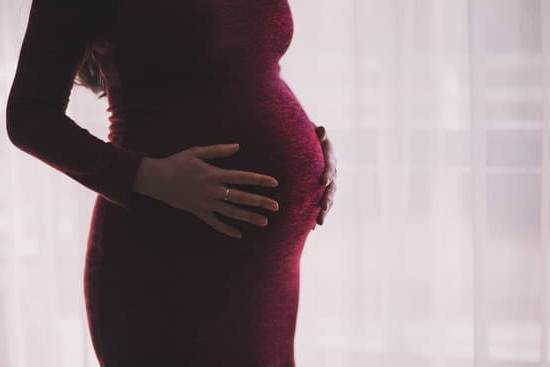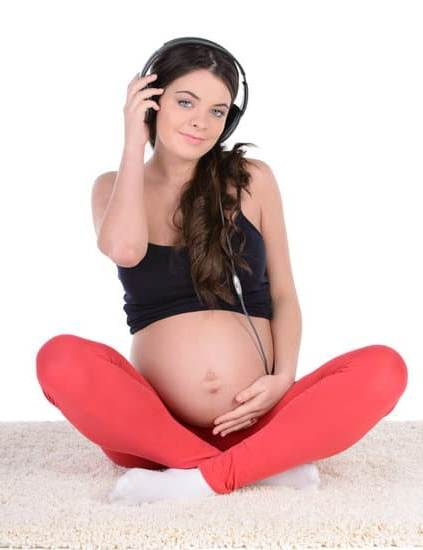Week 11 Pregnancy Belly
Now that you are in your eleventh week of pregnancy, your baby bump is starting to show. As your uterus grows, it begins to push your other organs out of the way, which is why you may be feeling more constipated and have an increased appetite. You may also be experiencing heartburn, nasal congestion, and more headaches.
All of these symptoms are normal and are caused by the hormones of pregnancy. As your baby continues to grow, your belly will continue to expand. By the end of your eleventh week, your baby will be about 1 1/2 inches long and will start to move around in your uterus.
Make sure you are taking care of yourself during this time by getting plenty of rest, eating a healthy diet, and drinking plenty of water. You can also start to prepare for your baby’s arrival by stocking up on diapers, wipes, and other supplies. Congratulations on making it to the eleventh week of your pregnancy!
10 Weeks Pregnancy Symptoms
The first trimester of pregnancy is often the most challenging for expectant mothers. Morning sickness, fatigue and mood swings are all common symptoms during this time. Here are the most common symptoms of 10 weeks pregnant:
Morning sickness: Morning sickness typically begins during the first trimester and subsides by the end of the second trimester. However, some women experience morning sickness throughout their entire pregnancy. Symptoms can include nausea, vomiting, dizziness and fatigue.
Fatigue: Feeling tired is common during the first trimester, as your body is working hard to support the growing baby. Try to get plenty of rest and eat healthy foods.
Mood swings: Hormone changes during pregnancy can cause mood swings. Try to relax and get plenty of exercise. If you’re feeling overwhelmed, talk to your doctor or a counselor.
Heartburn: Many women experience heartburn during pregnancy. To help relieve the symptoms, avoid eating late at night, eat smaller meals and drink plenty of water.
Constipation: Constipation is common during pregnancy as the body slows down digestion to allow for more nutrients to be absorbed by the baby. Drink plenty of fluids, eat high-fiber foods and exercise regularly.
Swollen ankles: Swelling is common during pregnancy, especially in the later stages. To help relieve swelling, drink plenty of fluids, avoid standing for long periods of time and elevate your feet when possible.
Headaches: Hormonal changes during pregnancy can cause headaches. To help relieve the symptoms, drink plenty of fluids, avoid caffeine and get plenty of rest.
Spotting: Light spotting is common during the first trimester. If you experience heavy bleeding, contact your doctor.
The first trimester can be a challenging time for pregnant women, but with a little bit of patience and self-care, most women make it through the first trimester healthy and happy.
Week Pregnancy Test
A week pregnancy test is a type of pregnancy test that can detect a pregnancy about one week after fertilization. This type of test is also known as a quantitative hCG test. The week pregnancy test can detect very small amounts of the hormone human chorionic gonadotropin (hCG), which is only produced after a fertilized egg implants in the uterine wall.
Cramps Week 6 Pregnancy
Hey there! If you’re reading this, you’re probably in your sixth week of pregnancy and experiencing those lovely little cramps. Congratulations! You’re pregnant!
Now, what are those cramps In early pregnancy, the uterus is growing and expanding. As it does, it may press against nearby blood vessels and nerves, causing pain. The cramps may be mild or strong, and they may come and go.
generally, the cramps aren’t anything to worry about. However, if you experience severe pain, bleeding, or a fever, call your doctor right away. Otherwise, just relax and enjoy your little one on the way!
Week 1 Pregnancy
Congratulations! If you are reading this, it means you have either recently found out you are pregnant, are trying to become pregnant, or are just curious about what happens during the first week of pregnancy.
The first week of pregnancy is marked by the first day of your last menstrual period (LMP). At this point, your body is gearing up for ovulation, and the fertilized egg will implant in the uterine wall about 6-12 days after ovulation.
During the first week of pregnancy, you may experience some common symptoms, such as fatigue, morning sickness, and mood swings. These symptoms are caused by the hormonal changes that are taking place in your body.
The first week of pregnancy is also a time of great change for your baby. The embryo will start to form, and the heart will begin to beat. By the end of the first week, the embryo will be about 0.1-0.2 inches long.
If you are trying to become pregnant, it is important to note that you may not experience any symptoms during the first week. However, there are some things you can do to increase your chances of conception, such as tracking your ovulation and having sex on your most fertile days.
If you are pregnant, the first week is a time to start preparing for the changes that will come in the weeks and months ahead. You will need to make some important decisions about prenatal care, and you may also want to start planning for your baby’s arrival.
The first week of pregnancy is an exciting time, and there is a lot to look forward to in the weeks and months ahead.

Welcome to my fertility blog. This is a space where I will be sharing my experiences as I navigate through the world of fertility treatments, as well as provide information and resources about fertility and pregnancy.





